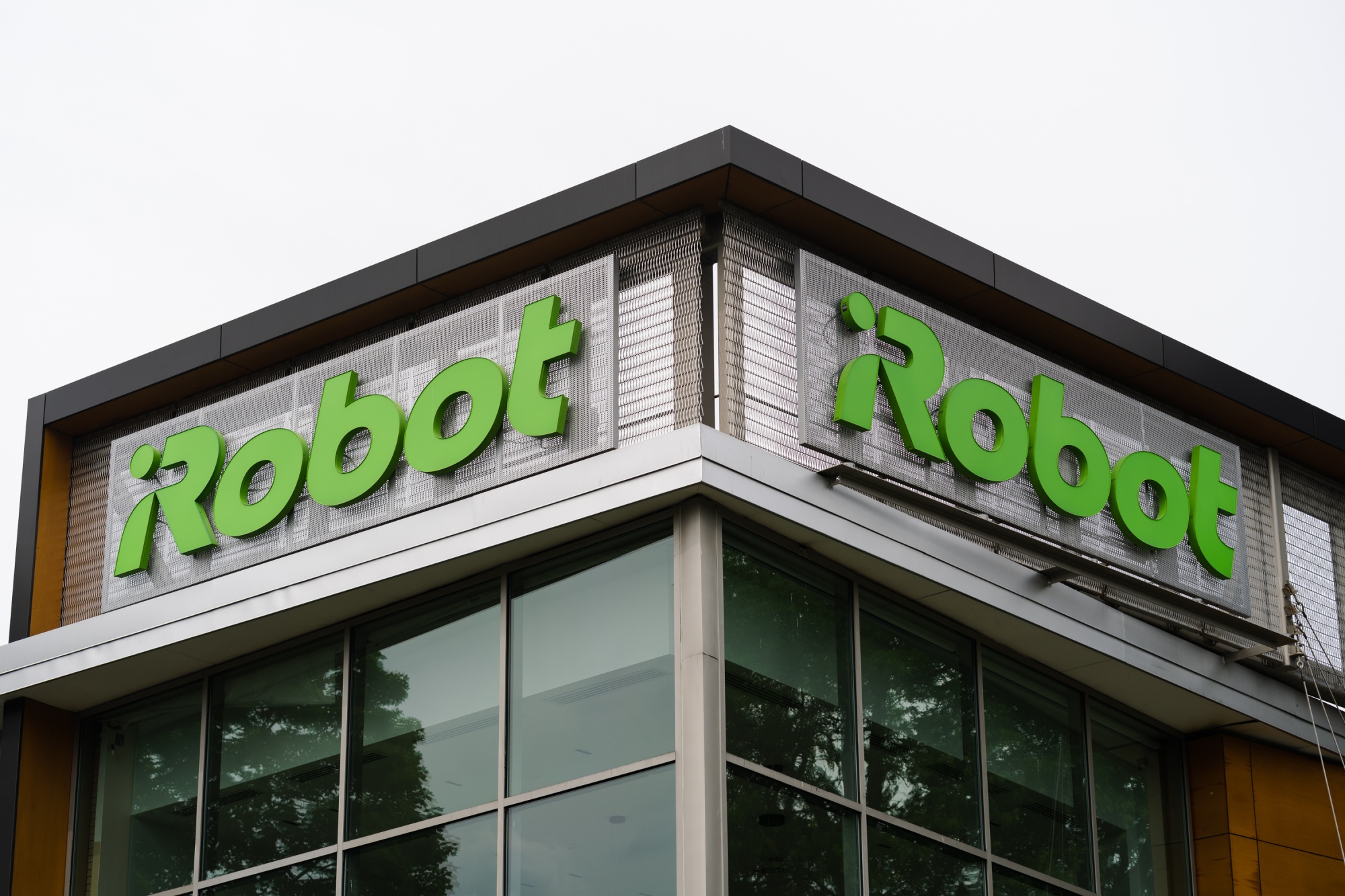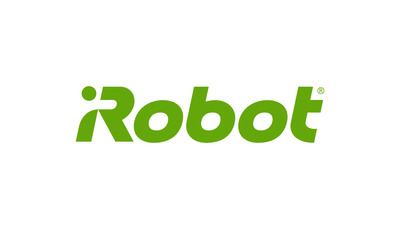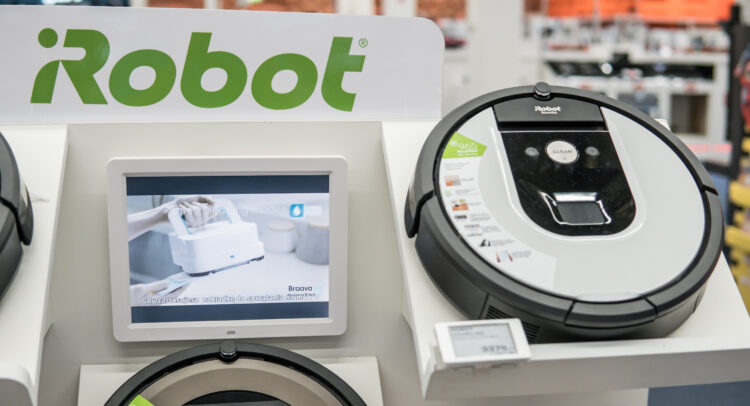iRobot Corporation (NASDAQ:IRBT) Faces Financial Challenges in Q2 2024

- iRobot Corporation (NASDAQ:IRBT) reported a significant downturn in Q2 2024, with a wider-than-expected adjusted loss and a sharp decline in revenue.
- The company's financial strain is highlighted by an adjusted loss of $1.96 per share and a revenue of $166.4 million, both missing Zacks Consensus Estimates.
- Challenges include a shift in consumer preferences, a decrease in units shipped, and a drop in average selling prices, affecting both domestic and international operations.
iRobot Corporation (NASDAQ:IRBT), known for its robotic vacuum cleaners and other automated home devices, faced a challenging second quarter in 2024, as evidenced by its financial performance. The downturn reflects broader challenges in the consumer electronics sector, where competition is fierce and consumer demand can be volatile. iRobot's performance is particularly noteworthy given its position as a leading player in the home robotics market, competing against both established electronics giants and emerging tech startups.
The company's adjusted loss of $1.96 per share was notably below the Zacks Consensus Estimate, indicating a deeper financial strain than analysts had anticipated. This loss also represented a significant decline from the previous year's figures, underscoring the worsening financial health of iRobot. The revenue figures further painted a grim picture, with iRobot generating $166.4 million, missing the Zacks Consensus Estimate and marking a substantial year-over-year decrease. This decline in revenue was across the board, affecting all product categories, which signals a broad-based slowdown in consumer demand for iRobot's offerings.
A closer look at the sales composition reveals a shift in consumer preferences, with premium and mid-tier robots comprising a smaller portion of total robot revenues compared to the previous year. This shift, coupled with a sharp decrease in total product units shipped and a drop in average selling prices, suggests that iRobot is facing challenges not only in maintaining its sales volume but also in sustaining its pricing power in the market. The significant decrease in revenues from solo and other products, alongside a drop in units shipped, further highlights the difficulties iRobot is encountering in its product mix.
Geographically, the company saw a decline in revenues from both domestic and international operations, with a particularly steep fall in domestic revenues. This geographic breakdown indicates that iRobot's challenges are not confined to a single market but are widespread, affecting its global operations. Despite efforts to manage costs, as seen in the decrease in the cost of revenues and operating expenses, iRobot's financial health deteriorated, with a significant contraction in adjusted gross margin and a decrease in cash and cash equivalents on its balance sheet.
Looking ahead, iRobot's outlook for the third quarter and the full year of 2024 suggests that the company is anticipating some improvement in its financial performance. However, the projected net sales and adjusted loss per share indicate that iRobot still faces a tough road ahead in navigating its current challenges. The company's Zacks Rank #3 (Hold) reflects a neutral stance on its future performance, suggesting that investors are taking a wait-and-see approach to iRobot's ability to turn its fortunes around.
| Symbol | Price | %chg |
|---|---|---|
| MDIY.JK | 1090 | -0.92 |
| 021240.KS | 89200 | -1.12 |
| WOOD.JK | 456 | -1.32 |
| SPTO.JK | 645 | -0.78 |

iRobot Corporation's Financial Challenges and Market Position
iRobot Corporation, listed on NASDAQ under the symbol IRBT, is a prominent player in the consumer robotics industry. Known for its innovative home cleaning robots, iRobot faces competition from other tech companies venturing into smart home devices. Despite its leadership in the market, iRobot is navigating financial challenges, as reflected in its recent earnings report.
On August 7, 2025, iRobot reported an earnings per share (EPS) of -$0.68, which was better than the estimated EPS of -$1.12. This indicates that while the company is still experiencing losses, it performed better than analysts expected. The company also reported a revenue of approximately $127.6 million, surpassing the estimated revenue of $125 million. This revenue beat suggests that iRobot is managing to generate sales despite market challenges.
The company's financial results for the second quarter of 2025, ending on June 28, show that iRobot is facing ongoing market challenges and delays in scaling production and sales of new products. CEO Gary Cohen noted progress in expanding gross margins and controlling operating expenses, but the company's cash position continues to decline. This decline is due to the support of new product launches, which affects liquidity and operational flexibility.
iRobot's financial metrics highlight its current challenges. The negative price-to-earnings (P/E) ratio of approximately -0.67 indicates ongoing losses. The price-to-sales ratio of about 0.20 suggests that investors are paying 20 cents for every dollar of the company's sales. The enterprise value to sales ratio is approximately 0.17, reflecting the company's valuation relative to its revenue.
The enterprise value to operating cash flow ratio is around -1.44, indicating difficulties in generating cash flow from operations. The negative earnings yield of approximately -1.48% further underscores the company's financial difficulties. With a significantly negative debt-to-equity ratio of about -2.48, iRobot has more liabilities than equity. The current ratio of approximately 0.54 suggests potential liquidity issues, as the company may struggle to cover its short-term liabilities with its short-term assets.

iRobot Corporation (IRBT) Quarterly Earnings and Legal Challenges
iRobot Corporation, listed on NASDAQ as IRBT, is set to release its quarterly earnings on August 6, 2025. Analysts predict an earnings per share (EPS) loss of $1.12 and project revenue to be $125 million. iRobot, known for its robotic vacuum cleaners, faces competition from companies like SharkNinja and Ecovacs.
The company is currently embroiled in multiple class action lawsuits. Bragar Eagel & Squire, P.C. has filed a lawsuit in the Southern District of New York, targeting investors who bought iRobot securities between January 29, 2024, and March 11, 2025. The lawsuit alleges securities fraud, as highlighted by Bragar Eagel & Squire, P.C.
Levi & Korsinsky, LLP has also informed investors of a class action lawsuit against iRobot. This lawsuit claims that iRobot made false statements about its restructuring plan after the Amazon acquisition fell through. Investors have until September 5, 2025, to apply as lead plaintiffs.
Bronstein, Gewirtz & Grossman, LLC has filed another lawsuit against iRobot and its officers. This lawsuit accuses the company of making misleading statements about its business and operations. Investors who suffered losses during the specified period are encouraged to join the lawsuit.
Financially, iRobot faces challenges. Its negative P/E ratio of -0.57 and earnings yield of -1.75% indicate negative earnings. The company's debt-to-equity ratio is significantly negative at -314.48, suggesting high debt levels. Additionally, a current ratio of 0.55 points to potential liquidity issues in meeting short-term obligations.

iRobot Corporation's Financial Struggles and Strategic Review
- iRobot Corporation (NASDAQ:IRBT) reported an EPS of -$2.52, missing estimates and expressing "substantial doubt" about its future operations.
- The company's stock plummeted over 35% following the announcement of financial instability and uncertainties surrounding new product launches and market conditions.
- iRobot's financial metrics reveal significant challenges, with a negative P/E ratio of approximately -0.87 and a low debt-to-equity ratio of 0.08, indicating low debt but ongoing losses.
iRobot Corporation (NASDAQ:IRBT), known for its Roomba robot vacuum, recently reported its earnings, revealing an earnings per share (EPS) of -$2.52, which fell short of the estimated EPS of -$1.45. Despite this, the company generated a revenue of $172.04 million, slightly surpassing the estimated $171 million. However, the company has expressed "substantial doubt" about its ability to continue operating, as highlighted by its recent earnings release.
The announcement of financial instability has led to a significant decline in iRobot's stock, dropping over 35%. The company faces uncertainties with new product launches, consumer demand, competition, macroeconomic conditions, and tariff policies. In response, iRobot's board has initiated a strategic review to explore options like refinancing debt, potential sales, or strategic transactions. This move aims to address the challenges and stabilize the company's future.
iRobot's financial metrics further illustrate its current challenges. The company has a negative price-to-earnings (P/E) ratio of approximately -0.87, indicating ongoing losses. The price-to-sales ratio is 0.18, suggesting the stock is valued at 18 cents for every dollar of sales. Additionally, the enterprise value to sales ratio is 0.019, reflecting a low valuation compared to sales, while the enterprise value to operating cash flow ratio is negative at -0.42, indicating difficulties in generating positive cash flow.
The company's financial difficulties are also evident in its earnings yield, which is negative at -1.16%. Despite these challenges, iRobot maintains a low debt-to-equity ratio of 0.08, indicating a low level of debt relative to equity. The current ratio stands at 1.32, suggesting a reasonable level of liquidity to cover short-term liabilities. These metrics highlight the company's financial struggles and the need for strategic actions to improve its situation.
To navigate this challenging period, iRobot has appointed Neal P. Goldman as an independent director. Goldman's experience as CEO and managing member of SAGE Capital Investments and chairman of the board of Talos Energy is expected to be invaluable. His expertise in guiding organizations through financial and operational transformations will be crucial as iRobot explores strategic options to address its financial instability.

iRobot Corporation's Financial Struggles and Strategic Review
- iRobot Corporation (NASDAQ:IRBT) reported an EPS of -$2.52, missing estimates and expressing "substantial doubt" about its future operations.
- The company's stock plummeted over 35% following the announcement of financial instability and uncertainties surrounding new product launches and market conditions.
- iRobot's financial metrics reveal significant challenges, with a negative P/E ratio of approximately -0.87 and a low debt-to-equity ratio of 0.08, indicating low debt but ongoing losses.
iRobot Corporation (NASDAQ:IRBT), known for its Roomba robot vacuum, recently reported its earnings, revealing an earnings per share (EPS) of -$2.52, which fell short of the estimated EPS of -$1.45. Despite this, the company generated a revenue of $172.04 million, slightly surpassing the estimated $171 million. However, the company has expressed "substantial doubt" about its ability to continue operating, as highlighted by its recent earnings release.
The announcement of financial instability has led to a significant decline in iRobot's stock, dropping over 35%. The company faces uncertainties with new product launches, consumer demand, competition, macroeconomic conditions, and tariff policies. In response, iRobot's board has initiated a strategic review to explore options like refinancing debt, potential sales, or strategic transactions. This move aims to address the challenges and stabilize the company's future.
iRobot's financial metrics further illustrate its current challenges. The company has a negative price-to-earnings (P/E) ratio of approximately -0.87, indicating ongoing losses. The price-to-sales ratio is 0.18, suggesting the stock is valued at 18 cents for every dollar of sales. Additionally, the enterprise value to sales ratio is 0.019, reflecting a low valuation compared to sales, while the enterprise value to operating cash flow ratio is negative at -0.42, indicating difficulties in generating positive cash flow.
The company's financial difficulties are also evident in its earnings yield, which is negative at -1.16%. Despite these challenges, iRobot maintains a low debt-to-equity ratio of 0.08, indicating a low level of debt relative to equity. The current ratio stands at 1.32, suggesting a reasonable level of liquidity to cover short-term liabilities. These metrics highlight the company's financial struggles and the need for strategic actions to improve its situation.
To navigate this challenging period, iRobot has appointed Neal P. Goldman as an independent director. Goldman's experience as CEO and managing member of SAGE Capital Investments and chairman of the board of Talos Energy is expected to be invaluable. His expertise in guiding organizations through financial and operational transformations will be crucial as iRobot explores strategic options to address its financial instability.

iRobot Corporation (NASDAQ:IRBT) Faces Financial Challenges in Q2 2024
- iRobot Corporation (NASDAQ:IRBT) reported a significant downturn in Q2 2024, with a wider-than-expected adjusted loss and a sharp decline in revenue.
- The company's financial strain is highlighted by an adjusted loss of $1.96 per share and a revenue of $166.4 million, both missing Zacks Consensus Estimates.
- Challenges include a shift in consumer preferences, a decrease in units shipped, and a drop in average selling prices, affecting both domestic and international operations.
iRobot Corporation (NASDAQ:IRBT), known for its robotic vacuum cleaners and other automated home devices, faced a challenging second quarter in 2024, as evidenced by its financial performance. The downturn reflects broader challenges in the consumer electronics sector, where competition is fierce and consumer demand can be volatile. iRobot's performance is particularly noteworthy given its position as a leading player in the home robotics market, competing against both established electronics giants and emerging tech startups.
The company's adjusted loss of $1.96 per share was notably below the Zacks Consensus Estimate, indicating a deeper financial strain than analysts had anticipated. This loss also represented a significant decline from the previous year's figures, underscoring the worsening financial health of iRobot. The revenue figures further painted a grim picture, with iRobot generating $166.4 million, missing the Zacks Consensus Estimate and marking a substantial year-over-year decrease. This decline in revenue was across the board, affecting all product categories, which signals a broad-based slowdown in consumer demand for iRobot's offerings.
A closer look at the sales composition reveals a shift in consumer preferences, with premium and mid-tier robots comprising a smaller portion of total robot revenues compared to the previous year. This shift, coupled with a sharp decrease in total product units shipped and a drop in average selling prices, suggests that iRobot is facing challenges not only in maintaining its sales volume but also in sustaining its pricing power in the market. The significant decrease in revenues from solo and other products, alongside a drop in units shipped, further highlights the difficulties iRobot is encountering in its product mix.
Geographically, the company saw a decline in revenues from both domestic and international operations, with a particularly steep fall in domestic revenues. This geographic breakdown indicates that iRobot's challenges are not confined to a single market but are widespread, affecting its global operations. Despite efforts to manage costs, as seen in the decrease in the cost of revenues and operating expenses, iRobot's financial health deteriorated, with a significant contraction in adjusted gross margin and a decrease in cash and cash equivalents on its balance sheet.
Looking ahead, iRobot's outlook for the third quarter and the full year of 2024 suggests that the company is anticipating some improvement in its financial performance. However, the projected net sales and adjusted loss per share indicate that iRobot still faces a tough road ahead in navigating its current challenges. The company's Zacks Rank #3 (Hold) reflects a neutral stance on its future performance, suggesting that investors are taking a wait-and-see approach to iRobot's ability to turn its fortunes around.







